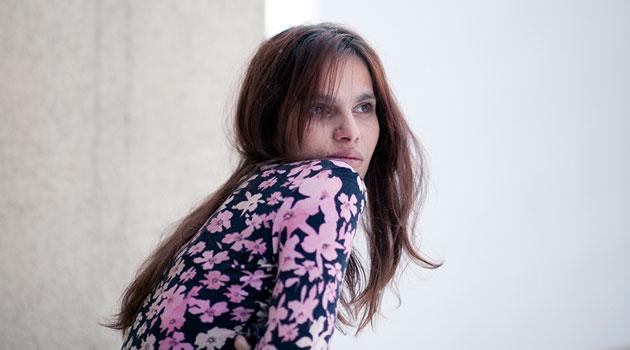Czech film "The Way Out", about life in a Romani ghetto, on general release in France to high praise

Director Petr Václav’s film "The Way Out" (Cesta ven), which has won seven Czech Lion awards, has been on general release in France since last Wednesday. French critics are praising the drama set in a Romani community, with reviews especially highlighting the performance by Romani actress Klaudia Dudová in the main role.
The film debuted last year at Cannes. Its French title is "Zaneta", the French form of the main character’s name.
Václav has been living in France since 2003 and began his career as a documentary filmmaker; the French cultural website TLC has written that the film is "simple and truthful". Critics say he has succeeded in capturing the protagonist’s boundless energy and her desire to find a way out of her community’s deprivation while maintaining her dignity.
The French newspaper Le Monde recommends the film as "an engaging, powerful, responsive and sensitive work of art". French news server Les Echos says it neither glamorizes nor simplifies the reality of Romani people frequently grappling with crime, poverty, racism and social exclusion.
Les Echos also writes that the extraordinary Dudová is radiant in the leading role as an embodiment of energy and will power who rises above anger. "The strength of this character penetrates directly to the heart. She makes an unforgettable appeal to the realm between emotion and reality," the news server writes.
A critic with the French website Culturapoing quotes Václav as saying that he decided not to stay quiet about those in the Czech Republic who have been chanting racist slogans such as "Gypsies get to work", "Let’s gas them" or "Go back to India". The critic writes that the film holds a mirror up to both Czech and French society.
Culturapoing says that both countries have in common a combination of social rejection of Roma on the one hand and a very different official policy toward them on the other. Its critic also writes that the story of the beautiful lead character serves to express the main message of the film, which downplays the cultural or ethnic aspect of the problem and highlights the more general aspect of a person grappling with serious difficulties in her life, including unemployment.
The fact that the film is about Romani people is said by the critic to be secondary. It is a film about the worries of impoverished people, whether Czech or French, writes the Culturapoing reviewer.
The review also notes that the screenplay was written during just two months and was filmed with amateur actors in the winter with a minimal budget. Václav says he wanted to show the completely banal reality of everyday life, because that is even heavier than the story itself.
Culturapoing writes that the decision not to use professional actors is one of the most impressive aspects of the film. Some critics, however, have deemed the stories of some of the supporting characters less credible and too divorced from the main story; the newspaper Libération writes that it considers the film a somewhat didactic "social chronicle" of the systematic discrimination of minorities in the Czech Republic.